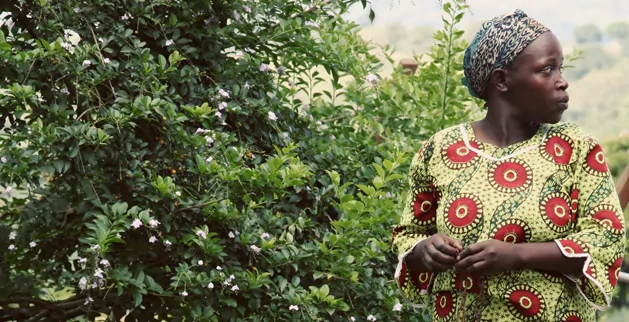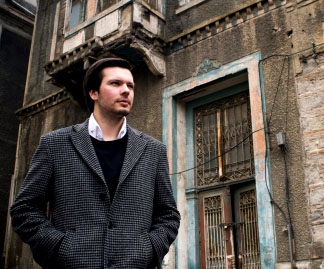
Between the sparkling waters of Uganda’s Lake Victoria and her capital city of Kampala, rests a foothill. At its crest stands a large house overlooking the Ugandan countryside. Its sturdy wooden frame houses large windows and a deep wraparound porch that welcomes the 360-degree view. A garden and volleyball court invite healthy activity outside. Sunsets from this perspective are a spectacular sight. Deep colors blanket the sky and reflect the peace that settles in the hearts of former orphans who have found a home here and are now part of what founder Eric Mumford calls “Father’s big family dream.” For these children, the name Father’s House and its function as a refuge in one of the world’s most shattered places really hits home.
“Father’s House is kind of a working model of the Kingdom of God, of the familial-based nature of the Kingdom as a family,” Mumford says. “We receive orphaned and abandoned children into our family as our own sons and daughters and educate them, and they work with us in outreach to their own people.”
Eric and Suzanne Mumford established Father’s House when they moved to the front lines of the African crisis in Uganda in 2005. Their mission is to establish a home for orphans, most of whom are victims of violence associated with the rebel group, the LRA (Lord’s Resistance Army) operating out of southern Sudan and northern Uganda. The house also serves to host medical missions to the countless refugee camps throughout Uganda, as a base for teaching material through their organization Lifechangers, and a place of rest for African leaders advancing the Kingdom of God. The Mumfords live to be earthly parents to adopted children while collectively embracing their own and their children’s identities as children of God.
Father’s House is home to the Mumfords, their two biological children and 11 adopted Ugandans added to the family since Father’s House was built in 2006. The Mumfords previously adopted three children from Ukraine, now young adults, who also live and serve at Father’s House. Central to its operation is family, not biologically, but of a Kingdom of God perspective.
“He’s sovereignly pointed out these children to us,” Mumford says, “and we’ve received them and brought them home, and we have had a grace from the Lord to love them as if they had come from our own body.”
Eight children from Father’s House come from the war zone in northern Uganda. Each had their parents murdered. The three youngest were adopted from a hospital from which their mothers fled after leaving a false name.
The view from Father’s House looks like paradise from the front porch, but it betrays the true state of this country. At the center of a handful of countries known for violence and genocide, Uganda is torn by war and occupied by thousands of refugees who flood over the border to refugee camps and have no form of livelihood. Rebels that operate out of southern Sudan make raids into northern Uganda, murdering, raping and abducting children. Abduction by the LRA is a real threat for many Ugandan children. They have been known to make nightly commutes to camps guarded by Ugandan troops to avoid abduction in the night.
Refugee camps are a way of life for many Ugandans, and in them orphans abound, Mumford says. Child mothers, young girls sexually exploited by idle men, are common. In addition to their own children, groups of orphans congregate around these young mothers, having no other means of care. This refugee situation has caused a “welfare mentality,” Mumford says, and most children have been robbed of their chance at a self-sustainable future.
“We’re trying to intervene there by starting micro-businesses and ministering to them, kind of as an unusual family,” Mumford says.
Unlike many of their fellow Ugandans, however, children at Father’s House have a bright future, having been rescued from the cruel life of the Ugandan orphan. The Mumfords’ son Rick, for example, suffered a typical Ugandan experience before coming to Father’s House. While gardening in the fields one day with his mother, a rebel raiding van unexpectedly approached with the worst of intentions.
“The rebels came and tried to force him to kill his own mother, but he wouldn’t do it and they killed her in front of his eyes,” Mumford says.
As a preteen boy, it was extremely unusual, Mumford says, that the rebels did not take him and coerce him into their agenda, as is typical. Amazingly, they let him go, and he has since found peace and restoration at Father’s House, now with a life full of opportunity.
The Mumfords’ daughter Jen is another example of a broken Ugandan life completely changed. She was found after God told Eric and his Ukrainian son Misha that a daughter awaited them in the northern commuter camps. God specifically pointed her out to them, Mumford says. Her feet were swollen and infected from the daily commute to avoid rebel soldiers. But in time, Jen’s feet healed, she became interested in ballet and came to dance before the queen of Uganda’s southern tribe. The queen took notice of her in a dance recital, despite the tribal prejudice between the southern and northern tribes. After seeing her perform and subsequently jump into the arms of Suzanne, her white mother, the queen invited Jen to share a meal with her.
“Now this queen is kind of a big deal,” Mumford says. “She is chauffeured in a white Mercedes and people bow down to her … and she doesn’t just eat with anyone. So here she was, this Ugandan queen of the southern tribe, sitting down with a northern Acholi refugee girl.”
The Mumfords adopt these children, educate them and give them the chance of an abundant life, a life at the opposite end of the spectrum of the typical Ugandan orphan. Most importantly for the Mumfords, their children’s stories provide a real-life parallel to the spiritual adoption that all sons and daughters of God, all Christians, experience. Not only does God the Father adopt us into His family, He gives us a place in His house.
“The zeal and the passion with which God reaches out as a Father to these children has been very powerful,” Mumford says, “and in the Kingdom of God, the last shall become first.”
In the heart of a very needy place, Father’s House is serving in the most fundamental way, reaching out to the desperate with the love of Jesus. Through adoption, education and training of Ugandans to lead their own people, Father’s House is tackling the issues practically, while not focusing on handouts or measuring success in dollars or numbers. They strive to keep in step with God’s simple plan for Christians: to be children of God who please the Father. For those of us not living in an African crisis, places like Father’s House remind us of a simple concept—that we too have been adopted, rescued from ourselves and have a home in the Kingdom of God.
“Our understanding of salvation through the Scriptures is really about adoption,” Mumford says, “that we’ve been lost children that have been under kind of a guardian and a false father, which is Satan, and that Jesus came to ransom us back and to adopt us.”





















